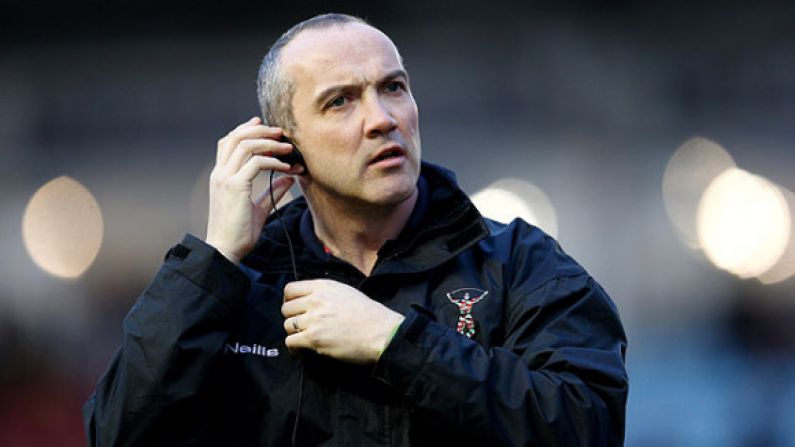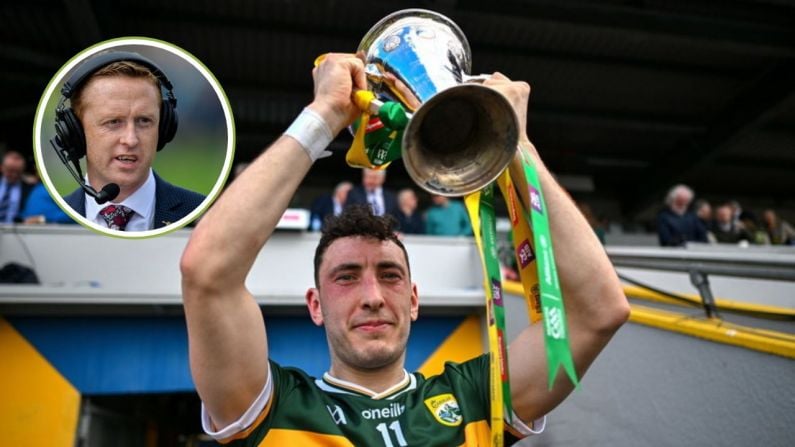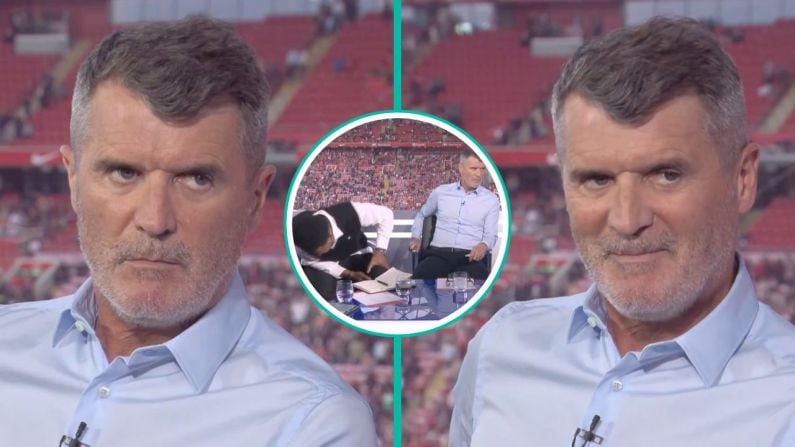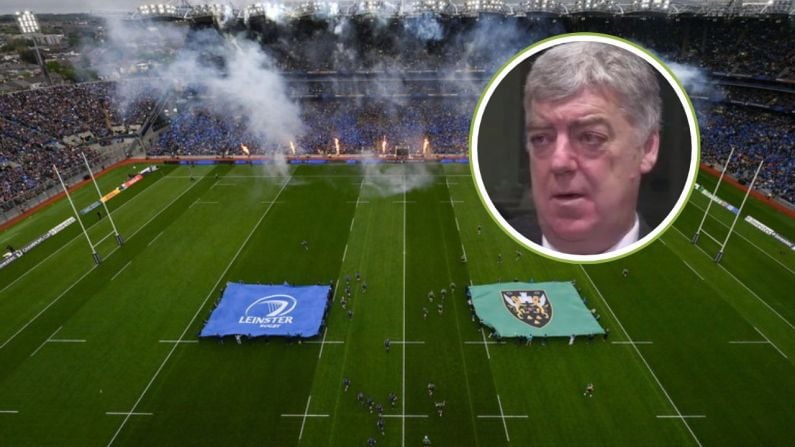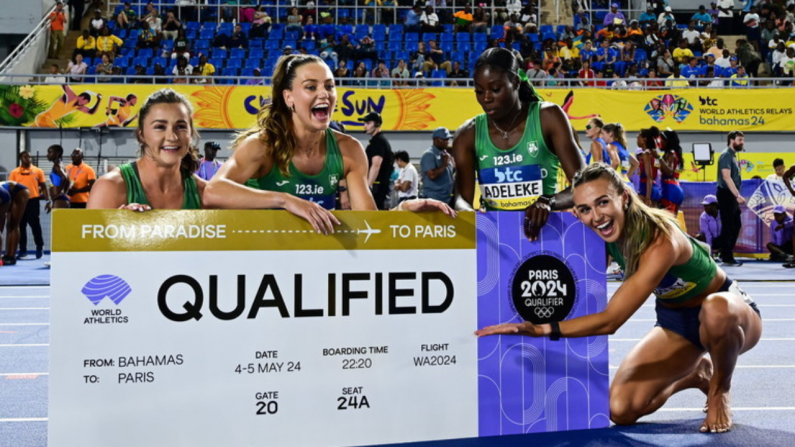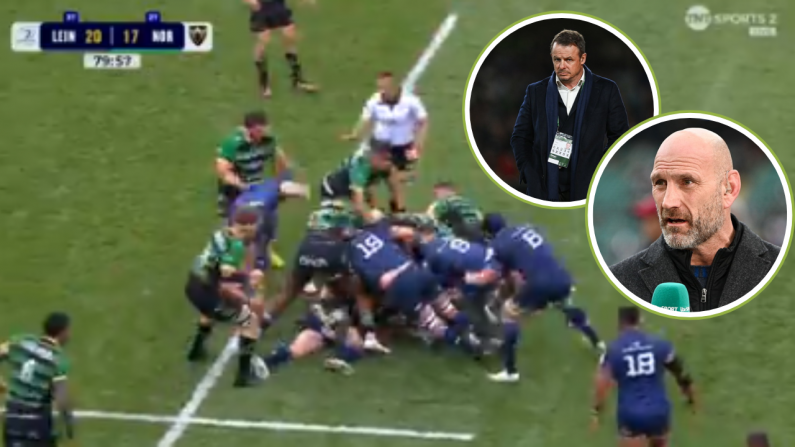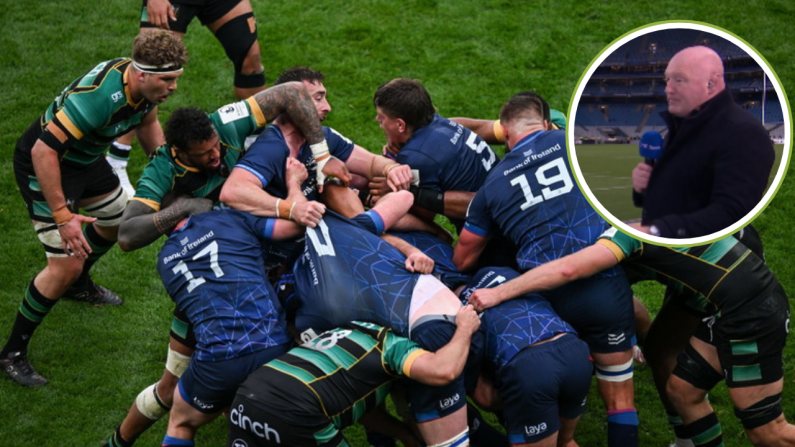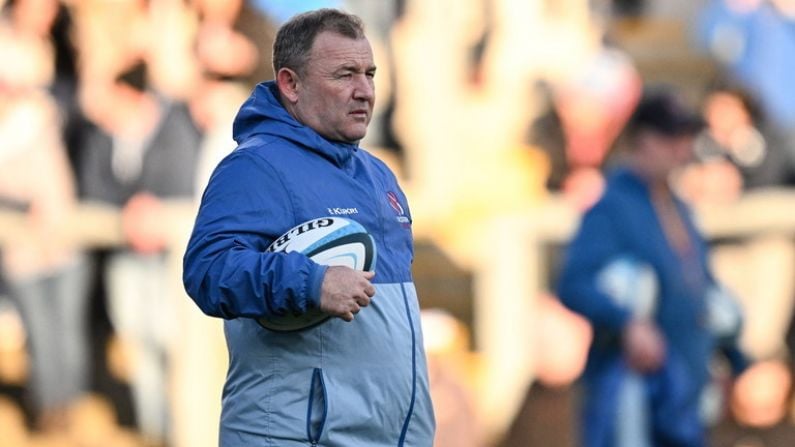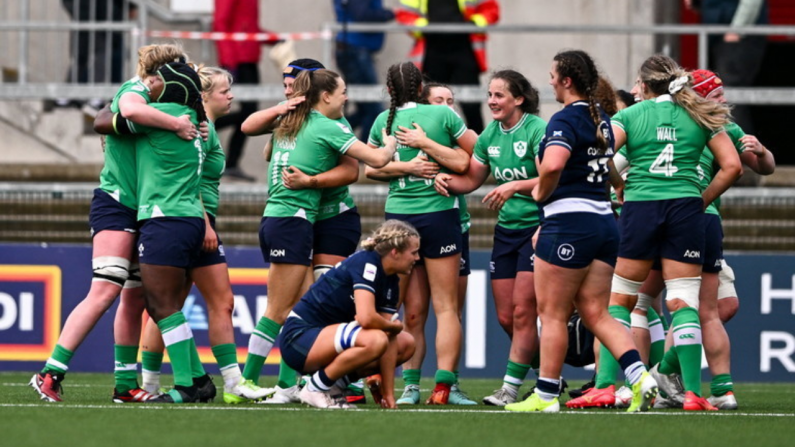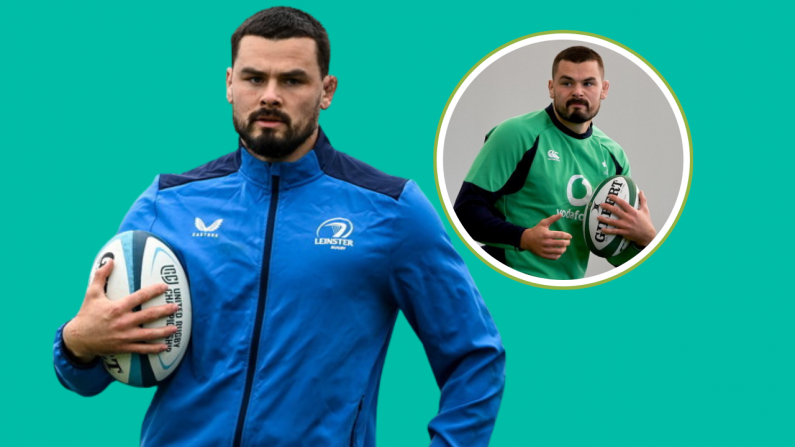A week is a long time in rugby
Harold Wilson’s famous quote about politics seems very apposite to rugby this week. Last Thursday, I was looking forward to my trip to Twickers with great trepidation. Ulster were recovering from an abject defeat to the Rabo’s whipping boys at Murrayfield and preparing to take on the reigning European champions in their backyard, somewhere they hadn’t won in 14 years. The Ulstermen travelled to the RDS more in hope of an improved performance, one to set them up for a tilt at the Bossership front-runners, than in expectation of an unlikely win.
There is no doubt that Ulster were bolstered by the post-6N return of Rory Best and the return from injury of Pienaar, Muller, Williams, Henry, Wilson and Henderson. Of course that would make the team stronger, but very few thought that they would be strong enough on their first run out to challenge Leinster who hadn’t lost since their festive trip to Ravers. The absence of Jon Afoa, on the other side of the world for the birth of his third child, was further cause for concern, especially as cover was provided by Ricky Lutton, making his first senior start, with tyro Kyle McCall on the bench.
The step up in performance was barely believable. Ulster played with an intensity that has been absent for months. The lineout was a reliable source of possession with Rory Best back to his usual top form, the scrum was surprisingly solid (massive ‘props’? to Ricky Lutton) and the defensive line, expertly marshalled by Darren Cave, was impressively quick out of the blocks. Nick Williams punched huge holes in the Leinster defence whilst both Gilroy and Trimble got their hands on a lot of ball, with Gilroy in particular making plenty of ground – 87m in all.
In the much-hyped battle of the 10s, PJ probably just edged it by dint of making fewer errors. His kicking from hand was sound, as were his restarts and his defence, as ever, was excellent with 13 tackles and no misses. Indeed, the Ulster defensive effort as a whole was outstanding, particularly in the closing stages. Dan Tuohy led the count with 17 and Roger Wilson had a flawless tackle count of 11 despite only coming on in the 63rd minute.
So not only did Ulster achieve a rare and precious victory in D4, one that ought to secure a home RDPXII semi-final, but they have returned to form just in time for their trip to London to take on England’s finest. Of course the travelling faithful are delighted that Sarries have forsaken the plastic of Copthall for the hybrid surface at Twickers because it gives us a chance to out-number the home support and, more importantly, out-sing the dreadful tannoy muzak. However, it will confer little advantage to Ulster as Saracens have an outstanding home record even though ‘home’, like a Tuareg tribesman’s, is wherever they lay their fez.
With the other 3 quarter-finals looking like nailed-on home wins, this match seems the most likely to provide an upset. And make no mistake, an Ulster win would be against the odds. Saracens might be skull-crushingly dull to watch, but this is because they base their game on making no errors, and waiting for the other team to make their own so that the preternaturally nerveless Owen Farrell can kick them to victory. Furthermore, if their capable, but uncreative centres can bring their talented back three into the game, they have the ability to score tries as Edinburgh can attest.
Both packs are toughened with Afrikaans steel. For Ulster, Muller’s leadership and steadying influence at the lineout are invaluable. Ulster are never as good when he doesn’t play. His former skipper for both the Sharks and the Boks, John Smit, will provide a real impact when he comes off the bench to replace the lively Schalk Brits. As indeed will the rest of the bench that should include high class players such as Hodgson, Gill, Nieto and Burger.
Apart from the strong Saffa influence, the other interesting sub-plot to this match surrounds the Saracens coach, Mark McCall. The Bangor boy made good was jettisoned by Ulster a year after he coached them to the Celtic League title. There is no doubt that it was a harsh move, but necessary as part of the major overhaul that was required at that time and which is now beginning to bear fruit. So it is great to see the former Ireland Centre succeeding at the top club in England to the extent that he is being talked of as a candidate for the vacant Ireland coach’s role. Prior to coaching David Humphreys and most of the Ulster coaching team, McCall played alongside them in the European cup winning team of 1999 and, whilst they may remain friends, there is little doubt that the rivalry will be fierce. Humphreys will not want to see his brave new world undone by the ‘ancien regime’ . Hopefully that will provide some additional motivation, if any is required, to see the Ulstermen home.
So it is an especially tough assignment that faces Ulster this weekend – tougher even than last year’s quarter at Thomond Park. On paper, Saracens are favourites, and Ulster will need to perform better than they did in Limerick last year, or at Franklin Gardens in December, if they are to prevail. But with most of their A-team back in harness and - if our collective prayers are answered -Monaghan’s finest straining at the leash on the bench, Ulster have enough to do it – just.
London calling
And here we are. The pool phase is over, the Six Nations has come and gone. It's knockout time in the Heineken Cup. Eight teams remain in the 2012/13 competition - three French, three English and two Irish. The Welsh, Scots and Italians will all be watching this one from their sofas.
A shared issue for both Ulster and Munster from the pool stages was their quality of place kicking, or lack of. Munster's 69% success rate was certainly below what fans of the southern province will have come to both expect and enjoy over the years. However, both Toulon (71%) and Leicester (70%) exhibited similar waywardness from the tee. You can win games kicking around 70%, especially in Toulon's case if you're outscoring your pool opponents by an average of 2.5 tries per game.
The best kickers left in the competition (minimum of 10 attempts)? Montpellier's Martin Moyano (93%), Charlie Hodgson (88%), Morgan Parra (87%), Harlequins' Ben Botica (84%) and Ronan O'Gara (84%). Where's Owen Farrell? Well he actually only had a 74% success rate from the tee, even including his wonderful 11 from 11 day against Racing Metro in Nantes.
Ulster only scored 0.7 tries per game more than their opponents, and between Ruan Pienaar (38%) and Paddy Jackson (69%) they kicked just 57% of their goals. It's tough to win tight games with that sort of kicking profligacy, even if a couple could be written off to the odd ultra-long-range Pienaar effort.
Munster's opponents Harlequins were top scorers in the competition with 41 points, albeit in a relatively understrength pool. But Quins were also terrifically disciplined. In their six pool matches Conor O'Shea's team conceded under eight penalties per game while their opponents conceded over 17. That penalty ratio of +9.5 is quite simply enormous. On the other hand, in a much tougher pool Munster conceded 13.5 penalties per game to their opponents' 10.8. Penalties aren't the be all and end all, but to even draw level Munster would need a big swing in their direction on Sunday which will not be easy to do in an away fixture in the Heineken Cup.
Ulster were the best tacklers of the quarter-finalists, in fact their 92% rate was the best in the competition. They also had the best turnover ratio and the competition's best points defence, conceding just 9 points per game. Ulster had several of the first round leaders in forced turnovers with Rory Best the best of the lot; the Ulster hooker forced 14 turnovers while conceding just a single penalty. The next best mark was Justin Tipuric with 9.
Clermont might have conceded 1.5 points more per game than Ulster but their try defence was magnificent, allowing just one try in every two games. Munster too were stern in this facet of the game, just a notch behind Clermont.
Ireland's two quarter-finalists both had set piece issues in the pool matches, in fact they are the only two of the remaining eight teams to have a combined set piece success rate below the competition average.
In the scrum, Munster will again have to reverse a trend from the pools if they are to exert some dominance in this part of the game; Harlequins had a 95% scrum success rate while Munster lost 25% of their own ball. Ulster were a notch better than Saracens but both were below average of the quarter-finalists. The Leicester pack will have their work cut out for them in Toulon; their French hosts had a 94% scrum success rate while restricting their opponents to a competition-low 72%.
Saracens might have been unremarkable in the scrum but in the first round their lineout performance was magnificent. Mark McCall's team collected 94% of their own ball and stole almost two opposition throws per game. Ulster's lineout unit was not so impressive, allowing 2.3 steals per game, losing 25% of their own ball and allowing a 90% success rate on their opponents' throws. Their 75% rate was the worst in tin the entire competition. Ulster are the only quarter-finalist to have a negative lineout ratio and that -15% cannot be simply written off to dumb luck.
With two away ties for the Irish provinces, serious holes in some aspects of their games and the Irish coming off a calamitous Six Nations, Ulster and Munster will need every bit of that travelling support to help them to an improbable semi-final berth.

